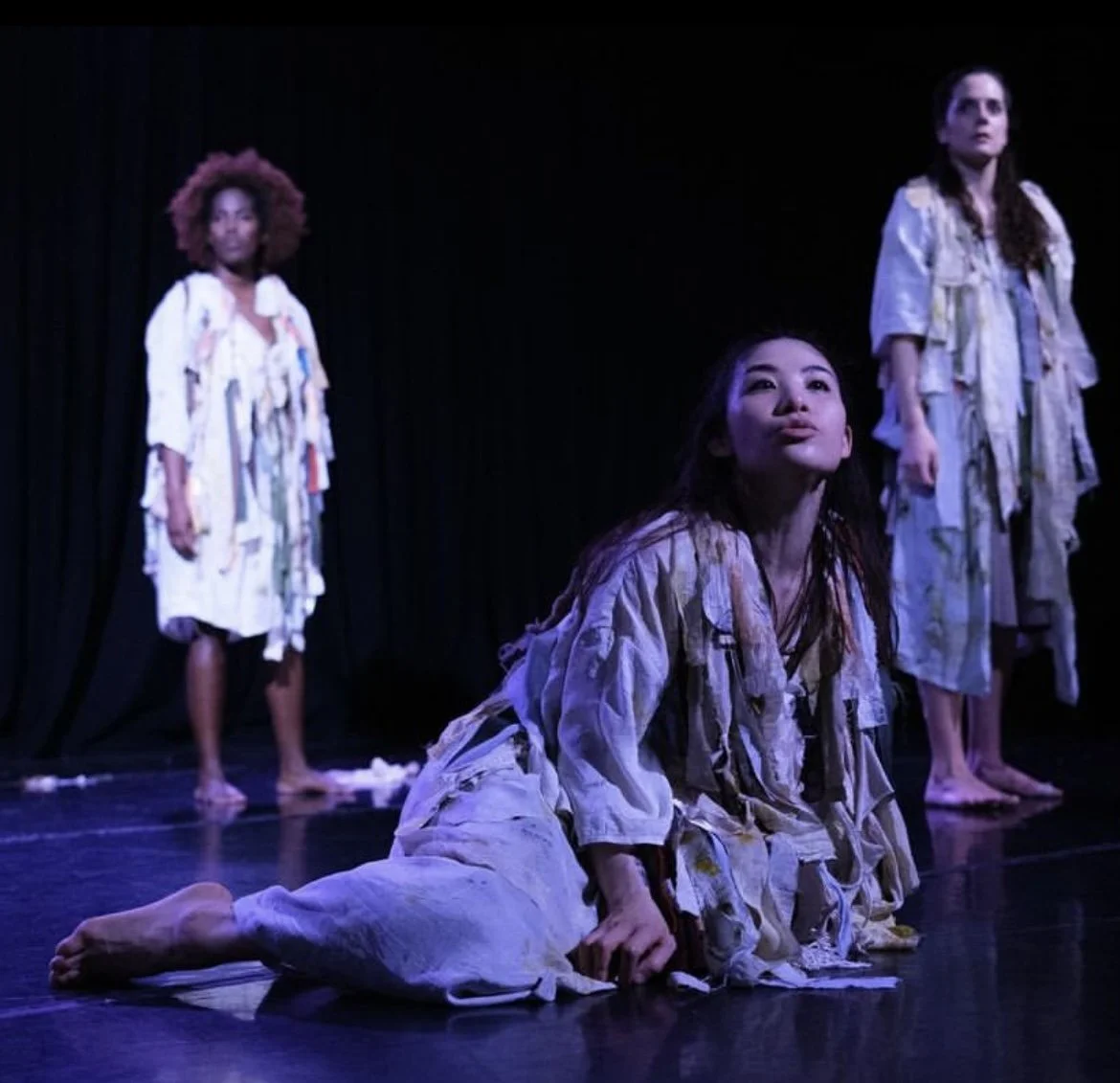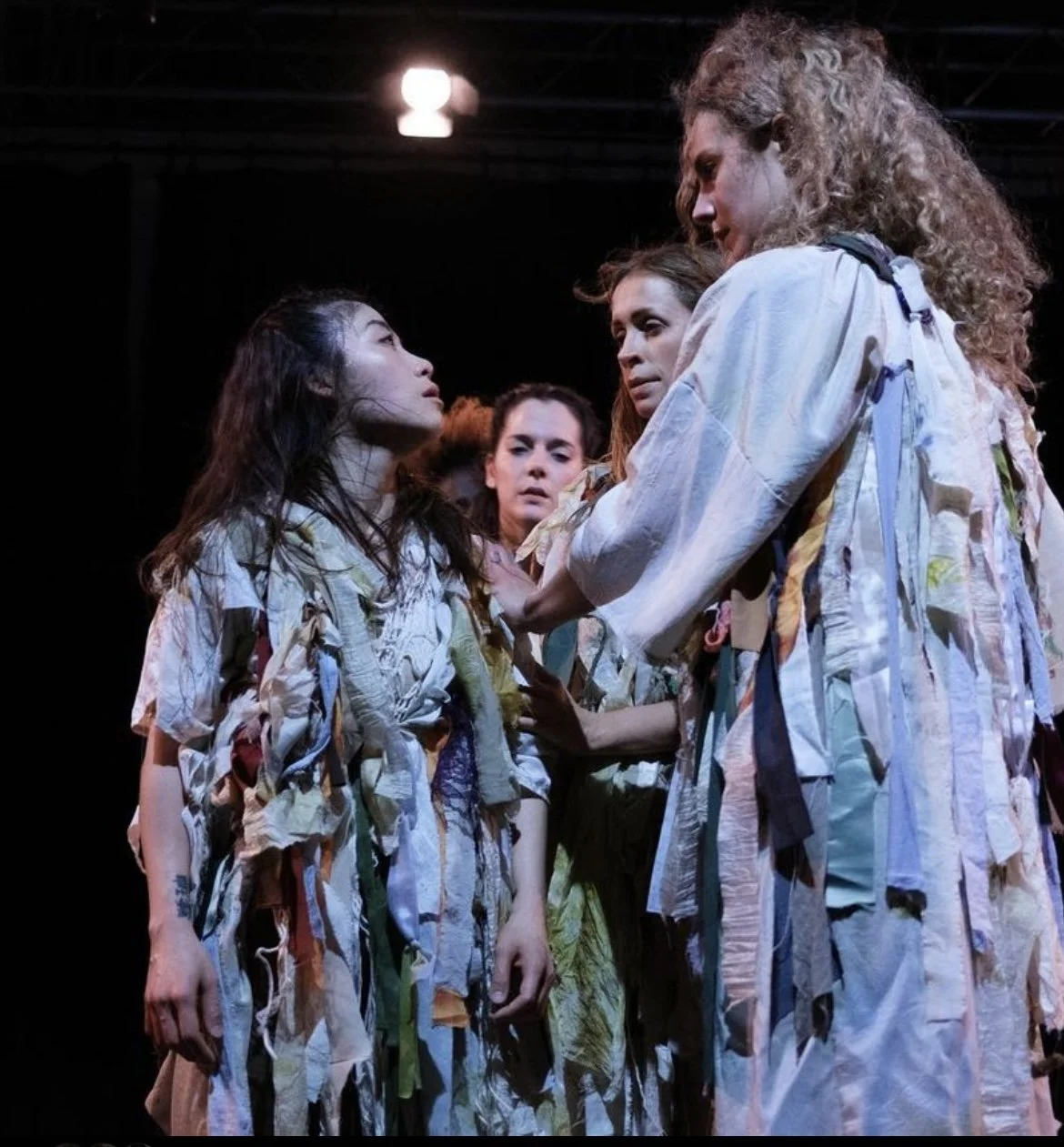J'ai un Bleu / I have a bruise - Laura Kenyon
Rich Mix Theatre, 35-47 Bethnal Green Road, London, E1 6LA, England
Reviewed by Khalia Willett- Francis
Before you read on, please note that this review touches on sensitive topics, such as sexual abuse and violence, towards women in particular, that may be distressing for some readers.
J'ai un Bleu - I have a bruise, follows the act and repercussions of sexual assault/violence towards women. The production also explores the self-loving and what can sometimes be a self-loathing path that women often have to take to reclaim their love for themselves amidst the seemingly cold world around them.
During the lockdown period, there were many cases in which both men and women were confined within their homes with their abuser. The place these people called home became less and less of a safe space, and many people were cut off from their support systems, which meant they went through a lot of trauma and distress alone. Laura Kenyon saw this and refused to ignore the issue, as society often does, and created a short documentary that premiered in The Barbican Theatre. Being an ally for women who continue to go through these experiences, Laura has invested her time, continually developing the documentary over the years into a live dance theatre production.
The piece immediately draws you in, much like a siren song lures a sailor's ship. The performers command your attention through breathwork and vocal development, like the sweet, dangerous notes of their song, luring you in with the beauty of their voices. Thus, creating a natural curiosity within the auditorium and a desire to find out more, paired with a false sense of comfort in the tranquillity of Anliya's (performer & vocalist's) exquisite vocal performance.
Women and young girls are often made to feel self-conscious and uncomfortable because of mindless violence and sexual misconduct towards them, and although these things happen every day, shedding light on these events is still a taboo topic. Through the collective plethora of performance/movement skills and body control, WomanEwer have been able to personify the raw feeling of discomfort. They do this by using their voices and bodies to create a visual representation of what it is to be uncomfortable and have no direct control over when that discomfort ends. Each dancer represents this through unity in their aesthetic presentation: loose hair, bare feet, faint and/or lack of makeup, and wild-looking pastel rags with hints of warming and strong vibrant colours such as reds and cool yellows that beautifully complement their sporadic yet controlled movements. This is married together with the use of pastel lighting choices that carefully reflect against the flooring, casting a light luminescent glow across the stage; paired with the mindful use of spotlight’s to exemplify specific moment’s and therefore command the audience's attention.
Throughout the performance, each dancer utilizes their bodies to visually portray discomfort and to create an immersive auditory experience that draws you into their pain and the strength of these incredible women who represent a nation of untold stories. As the piece develops, the way the dancers respond to sound changes. At the beginning of the piece, there is a big emphasis on floorwork, and coming in and out of the ground, and although the women are sharing the stage, they are visibly consumed by their own personal experiences and hardship.
Experiencing this live can be quite suffocating at times, as they invade your personal space as a member of the audience while intentionally making scarce eye contact with you and almost always looking past you. The piece makes you consider the notion that women are like glass, strong and durable enough to be useful in many different ways, most commonly to house other objects, yet fragile enough that they can be easily broken if not taken care of; in the same way that liquid at the 'right' pressure can break a glass, even though a drinking glass's sole purpose is to house the liquid that broke it in the first place. This is the same as your partner not understanding when you say no, because of this perceived entitlement and lack of education about what consent really is, so many women are left feeling broken because their voice wasn’t enough to be heard over the wrongful understanding of what the purpose of a woman’s body is to be used for. We are not purposed in the same ways as drinking glasses, where we have no choice of when we are 'filled up,' so to speak, and yet so often that choice is taken away from us because 'We asked for it' or, more commonly, 'If it was so uncomfortable for you, why didn’t you say anything?' The only question I ask you to think about is, what do you understand consent to be? Do you think saying no is the only acceptable form of not giving consent?
In this epidemic of sexual assault towards women, WomanEwer is a beacon for the lost girls who lost their voices because at the time when they needed to be listened to the most, they were ignored. They were and continue to be ignored not just by their perpetrators but by their families, by their friends, by the local authorities, even though they '...pick your brain [for you] to ultimately be misunderstood..’ and there are those ‘...who try to silence you [and then what’s left is] the battle [of] such oppression [that] begins under your skin.' Laura Kenyon and the dancers/vocalists that form WomanEwer are championing theatre by creating safe spaces to talk about these experiences; more than that, they are allies for women around the world. They are loud, they are proud, and they will not be silenced, promoting love for yourself, for each other, and helping each other to heal, whilst welcoming women of all diasporas and experiences to heal with them.
If you or anyone around, you are in need of support or want to become an ally for women who have and still do experience sexual abuse and violence towards them please see the link’s below:
Websites and Helpline’s for Rape and Sexual Abuse
24/7 Rape and Sexual Assault Website | Number: 0808 500 2222
Safeline - Councilling and Therapy Services | Number: 0192 640 2498
Rape and Sexual Abuse Support Centre Website | Number: 020 8683 3311
Websites and Helpline’s Domestic Violence
National Domestic Abuse Website | 24/7 Helpline: 0808 2000 247

